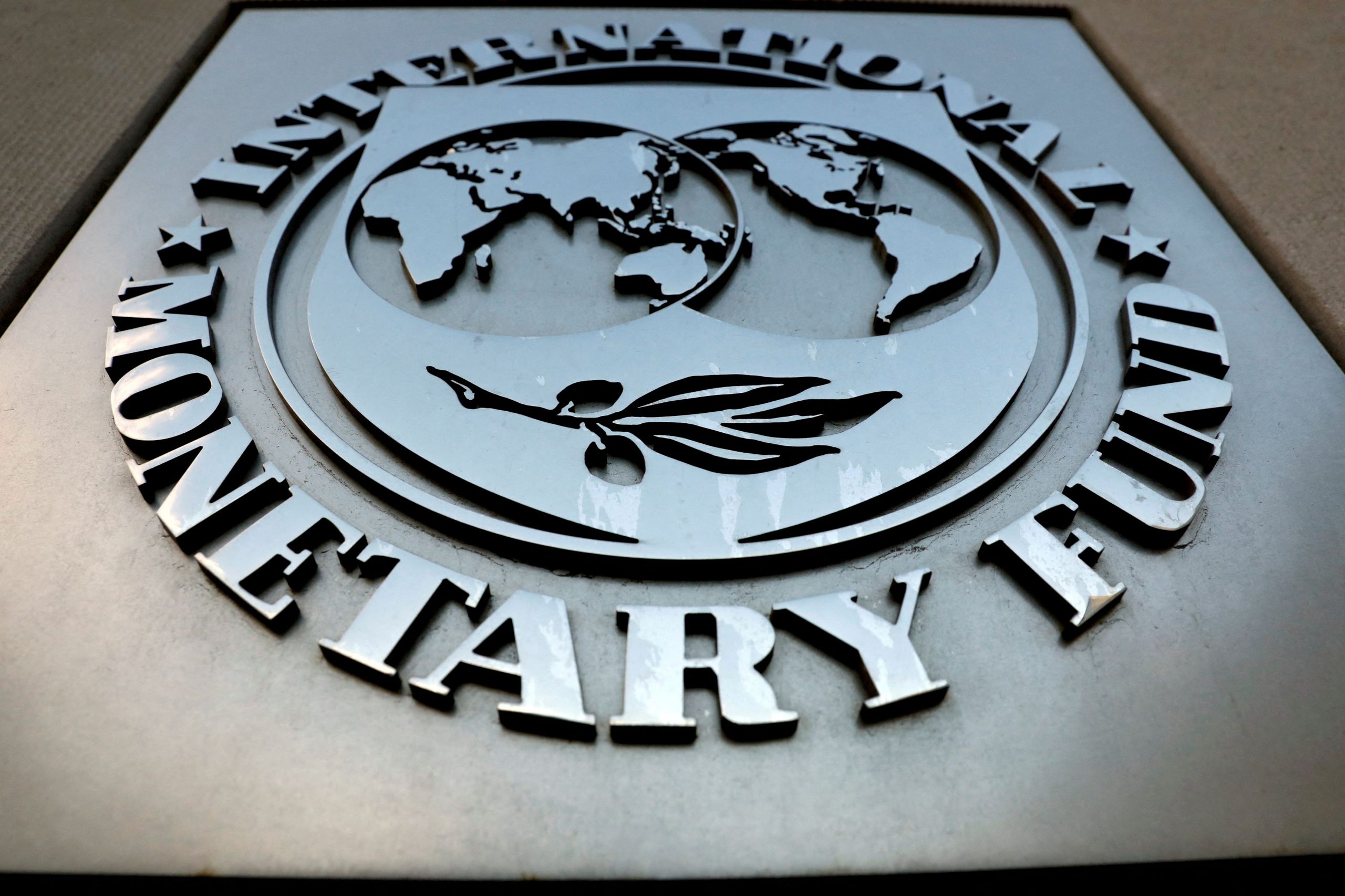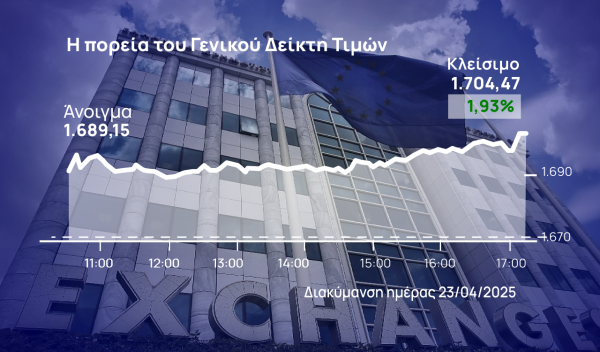
Greece’s economic outlook had improved notably, after a strong post-pandemic recovery, with economic activity remaining robust and real GDP growth projected at 2.3 percent in 2023 and 2.1 percent in 2024, according to the IMF.
This assessment was made by the International Monetary Fund’s (IMF) Executive Board Consultation with Greece for Article IV in a relevant statement released.
Following the completion of the discussions, the IMF Executive Board endorsed the assessment made by its officials without the need for a meeting, the official statement read.
The IMF predicts a real GDP growth of 2.3% in 2023 (revised from the previous 2.5%) and 2.1% in 2024 (revised from 2%). Regarding inflation, the estimate suggests a decrease from 4.2% in 2023 to 2.8% in the current year.
Private consumption is expected to be supported by real wage increases, while investments will continue to expand with the implementation of the National Recovery and Resilience Plan, backed by EU funds. The IMF estimates that core inflation will reach 2% by the end of 2025, as inflationary pressures gradually ease despite the ongoing stabilization of energy and food prices.
The banking sector has demonstrated resilience, reinforced by balance sheet consolidation, the IMP says, citing the improvement of the quality of assets, with the non-performing loan ratio falling below 5% in systemic banks. Higher net interest margins have contributed to a robust recovery in banking profits and enhanced capital adequacy.
The assessment highlighted two prominent risks for the Greek economy – the imperative for reforms and the need for further measures in specific areas. Structural reforms are deemed essential to ensure the sustainability and competitiveness of the economy. The success of these reforms is crucial for maintaining fiscal discipline, fostering a business-friendly environment, and encouraging foreign direct investment.
Sustained efforts in the digitization of public administration are also cited as a key aspect of ongoing reforms. The integration of digital technologies is expected to streamline government processes, improve efficiency, and enhance overall service delivery.
Furthermore, as noted in the report, pinpointing and dismantling barriers that hinder competition is crucial, as this would create a more dynamic economic landscape, fostering innovation and efficiency, and ultimately driving economic growth.
Productivity is also broached, as it is a result of the ongoing reforms across various sectors of the economy. In addition, by reducing bureaucratic hurdles, and fostering a competitive environment, businesses are likely to operate more efficiently, contributing to overall economic productivity.
The IMF concludes that coordinated efforts are required by the Greek government to achieve its ambitious goals for climate and facilitating the green transition. Given the dominance of fossil fuels in the energy supply, the robust implementation of the policy framework for renewable energy sources, including measures to streamline the licensing framework for new investments and better integration of renewable energy sources into an upgraded electricity grid, will accelerate progress while enhancing energy security.
Source: tovima.com
Latest News

IMF: US Tariffs Shake Global Economy, Outlook Downbeat
IMF slashes global growth forecast to 2.8% as U.S. tariffs create uncertainty and ‘negative supply shock

First Step Towards New Audiovisual Industry Hub in Drama
The project is set to contribute to the further development of Greece’s film industry and establish Drama as an audiovisual hub in the region

Airbnb Greece – Initial CoS Ruling Deems Tax Circular Unlawful
The case reached the Council of State following annulment applications filed by the Panhellenic Federation of Property Owners (POMIDA)

Mitsotakis Unveils €1 Billion Plan for Housing, Pensioners, Public investments
Greek Prime Minister Kyriakos Mitsotakis has announced a new set of economic support measures, worth 1 billion euros, aiming to provide financial relief to citizens.

Alter Ego Ventures Invests in Pioneering Gaming Company ‘Couch Heroes’
Alter Ego Ventures' participation in the share capital of Couch Heroes marks yet another investment by the Alter Ego Media Group in innovative companies with a focus on technology.

Corruption Still Plagues Greece’s Driving Tests
While traffic accidents continue to claim lives on Greek roads daily, irregularities and under-the-table dealings in the training and testing of new drivers remain disturbingly widespread

Pope Francis Died of Stroke and Heart Failure Vatican Confirms
As news of the official cause of death spread, tributes poured in from across the globe. The 1.4 billion-member Catholic Church is united in grief, remembering a pope who championed inclusion, justice, and compassion

Increase in Both Museum Visits, Revenues for 2024
As expected, the Acropolis was the top archeological site in the country, followed by Sounion, Mycenae, the ancient theater of Epidaurus, and Vergina in northern Greece

Where Greece’s Tourists Come From: A Look at 2025’s Top Visitor Markets
The United Kingdom continues to hold the top spot as the largest source of incoming tourism, with 5.6 million seats booked for Greece this summer — up 2.2% from last year. This accounts for 20% of all international air traffic to Greece

Pope Francis: A Pontiff Who Reshaped the Papacy and Sparked a Global Conversation
His first words from the balcony of St. Peter’s Basilica—“Brothers and sisters, good evening”—set the tone for a pontificate that would challenge norms, favor mercy over dogma, and bring the papacy closer to the people.












![Πλημμύρες: Σημειώθηκαν σε επίπεδα ρεκόρ στην Ευρώπη το 2024 [γράφημα]](https://www.ot.gr/wp-content/uploads/2025/04/FLOOD_HUNGRY-90x90.jpg)



![Ξενοδοχεία: Μεγάλο το ενδιαφέρον για επενδύσεις στην Ελλάδα – Η θέση της Αθήνας [γραφήματα]](https://www.ot.gr/wp-content/uploads/2025/03/Athens-hotels-90x90.jpg)
























 Αριθμός Πιστοποίησης
Αριθμός Πιστοποίησης